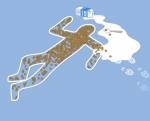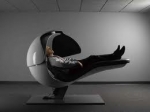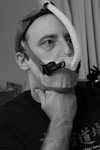pugsy wrote:I am fairly certain that what we think we might want...has already occurred to the powers that build this machines and someone somewhere is working on it because they know that people will buy it. If there is a way to make more money...companies will build it.
jnk wrote:The way things work now is that the big money is in the big business of diagnosing and prescribing. Since the manufacturers have to cater to that cartel in order to stay in the market and keep the consumer market from, uh, "influencing" the price of the machines too low, I doubt anything will be manufactured on purpose that could be seen as attempting to take the diagnostic process out of the hands of the pros any time soon.
pugsy wrote:Ahhh, but what if they do make something that makes the diagnostic part of things easier and better and more accurate for use at the sleep lab setting? I think it could filter down to home machines.
jnk wrote:The pros will always vote for covering their own, uh, assets, when it comes to reserving diagnostics for themselves, if for no other reason than to prevent patients from self-diagnosing "medical conditions," and the system is such that the pros are the customers right now. That has to be fixed before the patient will start coming truly first.
Thank you both for this exchange. It was one of the things on my mind when making the initial post and jnk's feedback has clarified why the present system is not as efficient as it could be. Would be interesting to hear other opinions on this topic.
archangle wrote:Ignoring the data collected by a CPAP machine because it's not as good as an in-lab PSG is like ignoring the results of a blood pressure reading because it's not as a $2000 nuclear stress test.
archangle wrote:A doctor should consider all the available data.
Especially the data that's cheap to obtain, requires little effort from the patient, and gets taken every single night.
All you have to do is look a the data. If the data looks good, you have a large degree of confidence the treatment is eliminating the apnea without any further expensive testing.
If it shows a severe AHI, you probably need to do something right away. At least look at the data and see if you can see something and adjust the therapy. If that doesn't work, consider more expensive, intrusive, and inconvenient investigation.
If it shows mild problems, use your judgment. At least look for problems and maybe make some minor tweaks. Ask a few more questions of the patient.
Also, don't forget that the data shows number of hours of sleep/usage, sleep patterns, etc. All in objective form automatically recorded without counting on the patient's memory, honesty, and your effort to write it down.
That's what i thought. There's so much data from a CPAP machine that may be useful in helping to figure out exactly what's going on with a patient (especially those with borderline cases and more complex issues), it just doesn't seem right not to use it. Perhaps some of it may not be clinically significant, but surely, some of it will assist in giving clues on how to better understand a patient's condition and ways to improve their treatment.
Todzo wrote:If you are talking about those with things such as complex and mixed apnea the need for in home testing not limited to a single night or week of is much greater
Todzo wrote:I really believe the days of the "golden standard" super expensive single night in lab studies are limited indeed. I think they never gave a good view of “the average night” anyway (sleeping in a lab was never an average night for me anyways).
Todzo wrote:The whole diagnosis and treatment process needs to move into the home and be much less time limited (testing needs to be done over days, weeks, perhaps months to really see what is going on) for the sake of the person being treated. Data needs to be constantly gathered during PAP use, analyzed daily, and feedback provided to the person to note problems as they occur and lifestyle changes that would be wise. I believe that to do less than this is medically irresponsible, simply, and do indeed challenge the medical community to prove me wrong if they can by doing long term in home sleep testing research trials.
Hey Todzo, thanks for summing up a large part of what i was trying to say very succinctly and much more coherently.
Thanks John, that's a very useful reference and a relevant one to this discussion. Although it is only limited to OSA, there must be some comparable benefits for Complex and Central Sleep Apnea patients to get more involved in their therapy.
Self-adjustment of CPAP at home will provide equal or superior efficacy in the treatment of obstructive sleep apnea (OSA) as compared with in-laboratory titration.
This isn't so surprising if it's true that … "
Lab titrations are done to titrate for worst-case scenario--supine REM in a strange environment. The idea is to prescribe a pressure that will be sufficient in that circumstance so that what happens in the patient's own bed, or in a motel, or anywhere else, is covered." … I presume this suggests that lab titrated pressures will be higher than what may be necessary in a patient's normal sleeping environment.
An educational model in which the patient is empowered with the understanding and ability to make decisions regarding treatment has been demonstrated to be successful in other medical conditions (16). We reasoned that a similar educational approach might be successful in patients with OSA who require CPAP treatment.
There's no doubt that it's not a good idea for the average patient to be 'tweaking dials and pushing buttons'. However, a large number of patients who are currently taking no part in optimizing their therapy will almost certainly be able to improve their treatment if they are provided with the information and confidence to do so IMO.















